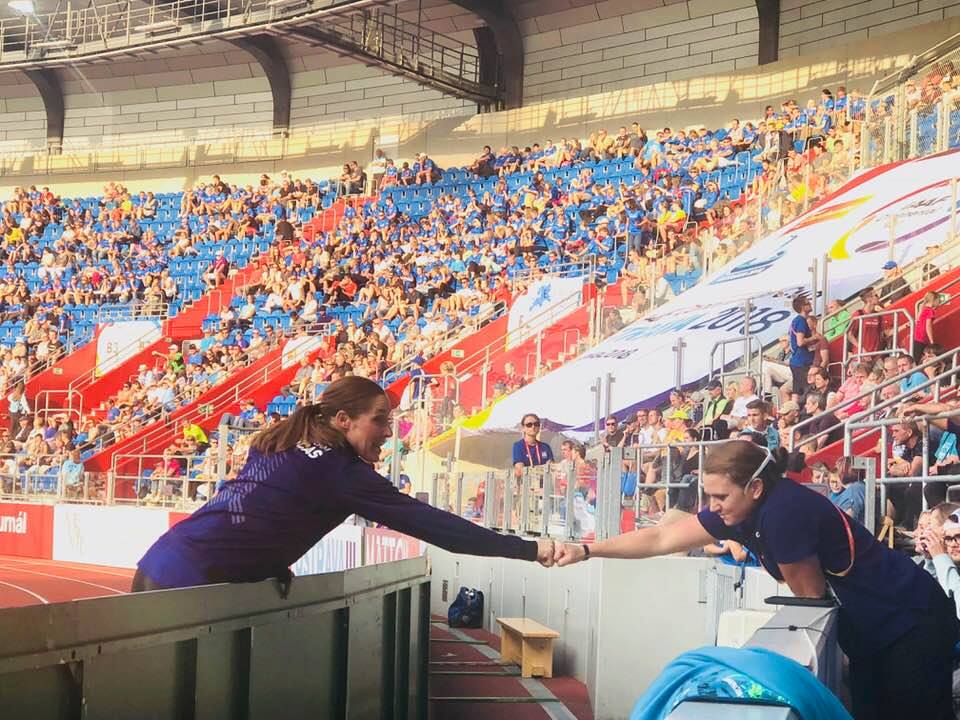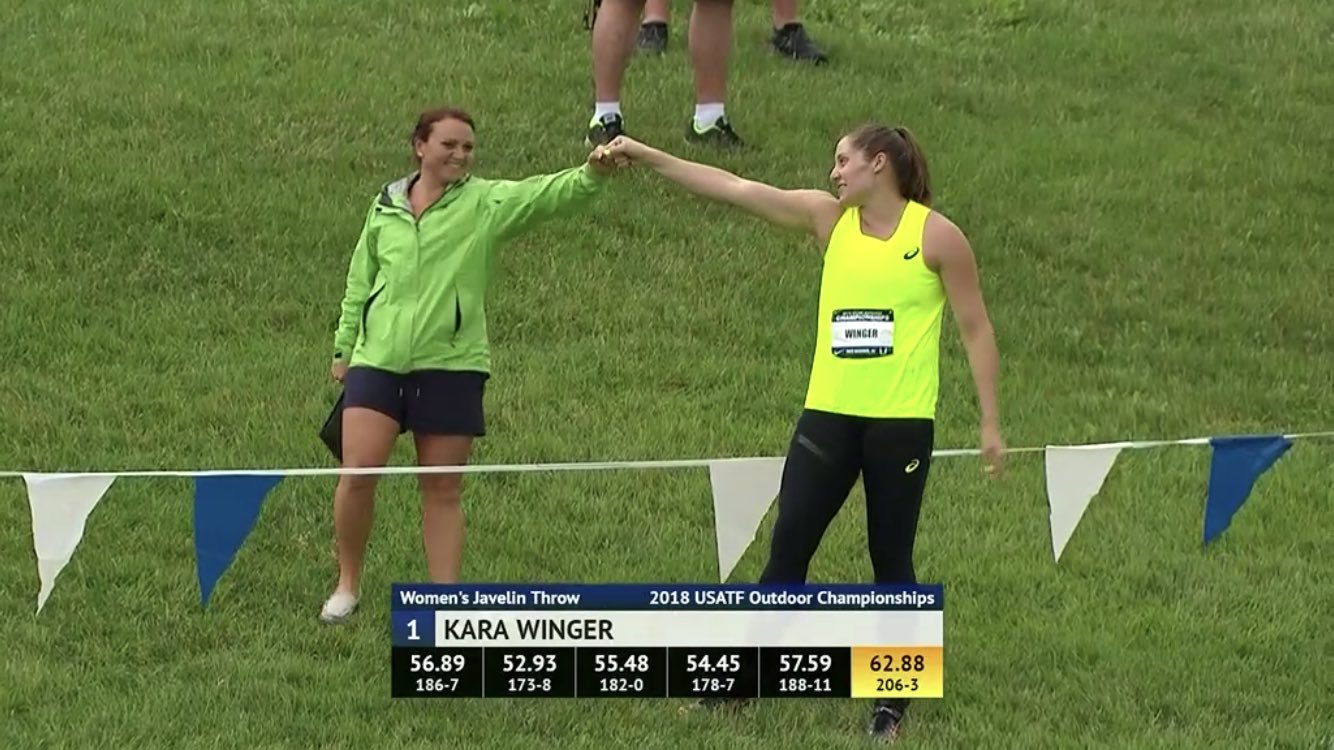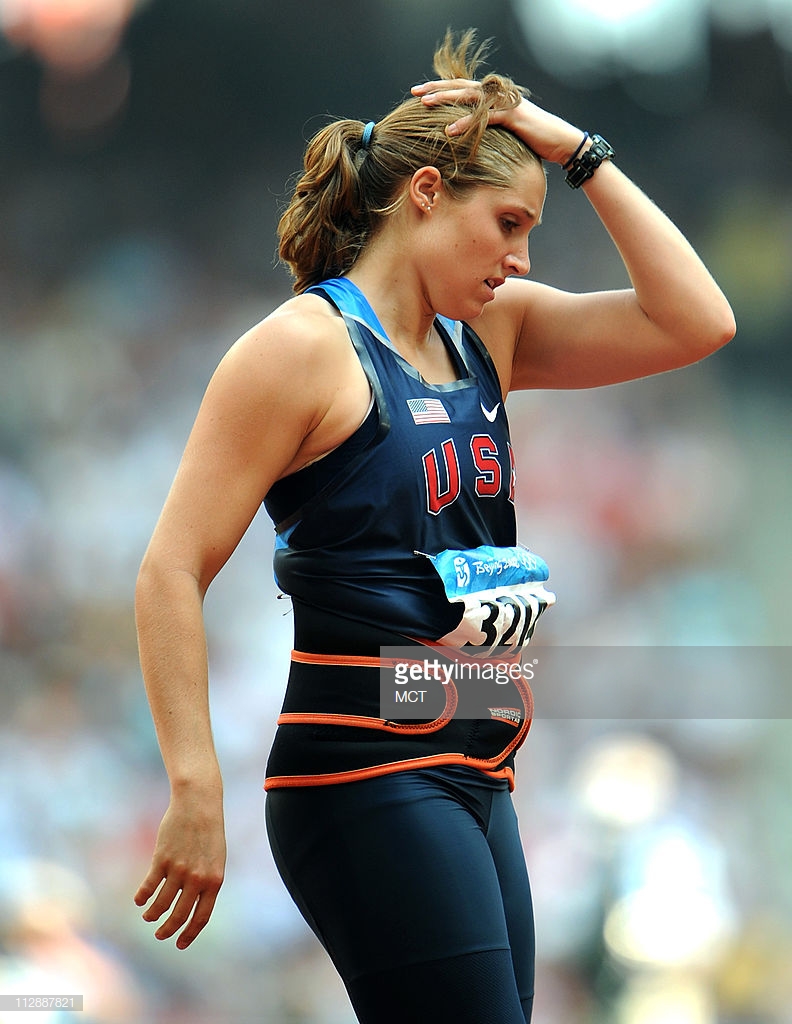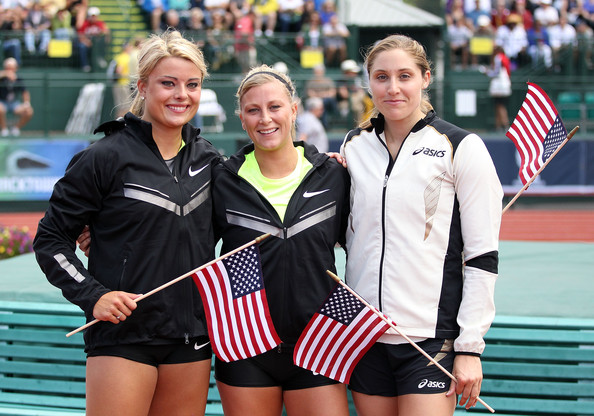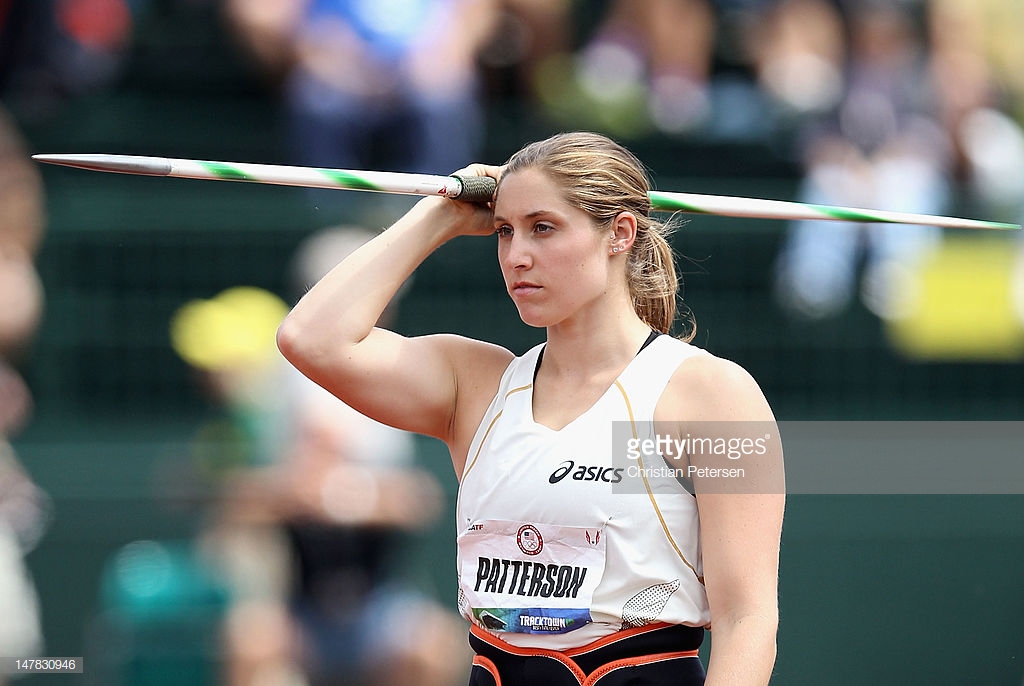I am currently on the road, in Chula Vista training before I go from here to Europe for my first competitions of the 2019 season!! I left home on May 1 and will return to Colorado on June 9.
Here is a video I made of me packing!! It’s long, but perhaps entertaining? If you’re looking for this specific kind of video. The equally interesting blog follows.
These are things you actually need while traveling as an athlete:
Competition Shoes.
Wallet/Purse (with passport if traveling internationally).
You can purchase EVERYTHING else. And you can also purchase competition shoes if you really need to. So just try to stop worrying about having stuff. I often pack all my crap, then when I’m walking out the door and I know I have way more than I need, I think to myself as I’m locking up, “Why do I need a house??? I have everything I need here with me.” Except for Maddie and Russ, but that’s a different story. It’s a really freeing feeling to finally realize that you’re going to be fine if you forget a few things.
All of that being said, I do like to feel prepared. I’m going to blog about my entire packing process! My strategy is to pack for about a week clothes-wise (and really that turns into closer to two weeks’ worth of stuff). I bring extra toiletries in travel sizes to continue making my suitcase lighter as I go (and I’m taking steps toward sustainability in travel because I’m sick of going through so much plastic container waste), and have the same strategy with snacks. I like to carry Tide Pods for laundry in Europe because that’s the part of European laundry that stresses me out the most (figuring out how to buy detergent in local-language laundromats). I bring a fair amount of electronics, but technology these days means that my entertainment devices are light and manageable and have good battery life (and fairly compact chargers). Therapy tools are just part of my training gear and something I don’t think twice about bringing. I only get one suitcase to check, because my second checked bag is my javelins, so I have to be smart about my packing, and I’ve grown to love the challenge and (to me) simplicity.
Since I bring javelins, everything I carry looks like a lot. I get asked often if I need help wielding my luggage, but that’s only because people see the giant javelin tube and are unfamiliar with it. I’ve been traveling with javelins for nearing two decades, so I am very, very used to fitting them through doorways and into overhead spaces in train cars and through folded-down rental car or Uber backseats. I know to watch the ceiling height as I go up an escalator. It’s easier for me to take an escalator than a European elevator that might be just big enough. The fact that all I have besides my javelin tube is a suitcase, backpack and small duffel bag makes my job really easy, it’s just that people don’t perceive it that way. I love being self-sufficient and mobile on long travel days by packing as light as I can. Read last summer’s travel blog!
The bottom line in packing is to pack the essentials, and then a few things that bring you joy. I have this towel turban that I wear around my house after I wash my hair, often. It’s not something I usually pack, but if I need a little pick-me-up on a trip, throwing that in my bag is a super simple way to stay connected to home and little luxuries! The combination lock I take to the gym is nice for me to have on the road, because I really love finding pools to swim in all over the world, and that experience is so much more fun when I’m not worried about getting robbed. My USB mouse is not an essential by any means, but it makes me happy.
Here are some lists of what I pack, complete and arranged in the way in which my brain works:
Javelins:
RockBack Case
4 javelins (usually all Nemeths)
a pair of socks per javelin
some sponges in there with the bbs to keep them safe
Suitcase:
Side one:
Snacks (see video) in eBags packing cube
extra toiletries (see video) in eBags packing cube
Training and competition clothes:
Long tights
Short tights
A few pairs of shorts
maybe a pair of sweats
Tank tops
Short-sleeved shirts
Long-sleeved shirts
Jackets/sweatshirts
Side two:
Sandals/flip flops
a pair of regular shoes of some kind
8 or so pairs of socks stuffed in the shoes
extra javelin shoes and spikes
Foam Roller, with these inside:
Lacrosse ball
some KT tape
underwear (7-9 pairs)
hat, stuffed with the following:
Real bra
bikini if I feel like it
warm hat and gloves
lap swimsuit
swim cap and goggles
Sports Bras. I bring a lot a lot.
Regular clothes:
a pair of shorts
a pair of jeans
a few tank tops
a few short sleeve shirts
a couple sweaters/long sleeves
A rain jacket
Perhaps a dress that I won’t wear but I’ll pretend I might
Small duffel bag (sits on top of the suitcase as you roll through the airport, gets carried on the plane):
Competition shoes
Competition uniform
Field hockey ball
a few snacks
pajamas (underwear and a tank top for me)
Liquids/gels/aerosols in their 1-quart container
Other essential toiletries in an eBags packing cube
my small makeup bag
a small padlock
knee compression sleeve
compression socks
Backpack:
Laptop & charger
wireless mouse
iPad (with earbuds) & charger
GoPro & charger
portable battery & charger
Noise-cancelling headphones
wireless earbuds
power/outlet converters & safety pins
Notebook with training pages
Training journal
a few nice pens
water bottle
glasses
sunglasses
a few snacks
neck pillow/eye mask
Snacks (in an eBags packing cube in the suitcase):
Instant oatmeal packets
Dried fruit
Peanut butter packets
Rx bars
Peaceful Fruits
Crystal Light/Propel/Gatorade packets
Instant coffee or espresso
Powdered coconut milk creamer
some chocolate
Toiletries (in an eBags packing cube in the suitcase):
Shampoos and conditioners
Facewash
Face lotion
sunscreen
floss/mouthwash/toothpaste
feminine products
nailcare kit/toenail polish/toe separators
extra hairties and bobby pins
razor/razor blades
contacts
deodorant
cleansing wipes
dry shampoo
I always wear my training shoes on the plane in case I have to run through an airport (common occurrence). After I get through security with my backpack and duffel bag, I often decide what I’m going to do on the plane and transfer those things to my backpack and the things I won’t use from my backpack to the duffel bag. I just like to pack each bag the same way each time so that I know that I’ve got everything I like to have! Typically my backpack for an international flight ends up containing:
iPad with earbuds
portable battery and cord to charge phone and iPad
my wallet (with chapstick, money/membership cards/etc., passport and phone)
filled water bottle
a few snacks
compression socks/knee compression sleeve
neck pillow/eye mask
noise-cancelling headphones
sweatshirt/jacket
Bluetooth headphones
glasses
toiletries I’ll use on the plane before I go to sleep (with my water bottle):
toothbrush/floss/toothpaste/mouthwash
my night guard
extra contacts for when we land
facewash
face lotion
cleansing wipes and deodorant
I’m probably forgetting something. But that doesn’t matter so much!!! Haha.



